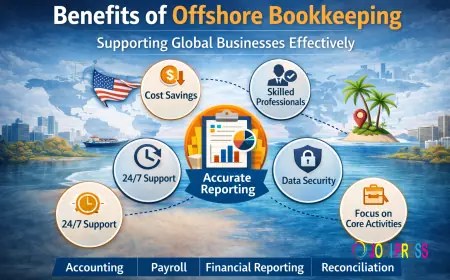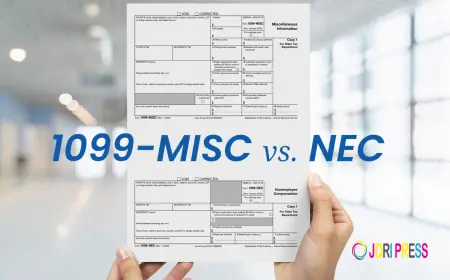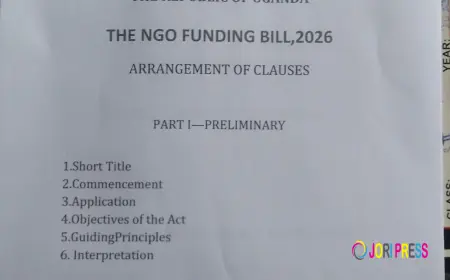Ultimate Guide to Selling Your Property & Maximizing Returns
Selling Your Property can be one of the most significant financial decisions you'll make, and with the right strategy, it can also be one of the most rewarding. Whether you're a first-time seller or have experience in real estate transactions, navigating today's dynamic property market requires careful planning, strategic pricing, and expert execution. This comprehensive guide will walk you through every essential step of the Selling Your Property process, from initial preparation to closing day, ensuring you maximize your investment while minimizing stress and potential pitfalls.
Understanding Your Property's Market Position
Before diving into the selling process, it's crucial to understand where your property stands in the current market landscape. Market conditions fluctuate regularly, influenced by economic factors, seasonal trends, and local developments that can significantly impact your sale price and timeline.
Conducting a Comprehensive Market Analysis
A thorough market analysis forms the foundation of any successful property sale. This process involves examining recent sales data, current listings, and market trends in your specific area. Look at comparable properties that have sold within the last three to six months, paying attention to properties with similar square footage, lot size, number of bedrooms and bathrooms, and overall condition.
Consider factors such as neighborhood amenities, school districts, transportation access, and future development plans that might affect property values. Properties near good schools, shopping centers, or public transportation typically command higher prices and sell more quickly.
Timing Your Sale Strategically
Market timing can significantly impact your success during the process of selling a property. Spring and early summer traditionally represent peak selling seasons, as families prefer to move during school breaks and favorable weather conditions. However, less competition during off-peak seasons might work in your favor if your property has unique selling points.
Preparing Your Property for Maximum Appeal
First impressions matter tremendously in real estate, and proper preparation can dramatically increase your property's appeal to potential buyers. This phase requires both aesthetic enhancements and practical improvements that address any underlying issues.
Essential Repairs and Maintenance
Address all necessary repairs before listing your property. Minor issues like leaky faucets, squeaky doors, or cracked tiles might seem insignificant, but they can create negative impressions and provide buyers with negotiation leverage. Focus on:
-
Plumbing and electrical systems: Ensure all fixtures work properly and address any safety concerns
-
HVAC maintenance: Service heating and cooling systems, replace filters, and ensure optimal performance
-
Exterior maintenance: Clean gutters, repair damaged siding, and address any roofing issues
-
Interior touch-ups: Fresh paint, carpet cleaning, and minor cosmetic repairs can make a significant difference
Staging and Presentation Strategies
Professional staging can increase your property's perceived value and help buyers envision themselves living in the space. If professional staging isn't within your budget, focus on decluttering, depersonalizing, and arranging furniture to highlight your property's best features.
Create a neutral, welcoming environment that appeals to the broadest range of potential buyers. Remove personal photographs, excessive decorations, and any items that might distract from the property's architectural features.
Pricing Your Property Competitively
Setting the right asking price is perhaps the most critical factor in selling your propertyin uk successfully. Price too high, and you risk extended market time and eventual price reductions. Price too low, and you leave money on the table.
Professional Appraisal and Valuation Methods
Consider hiring a certified appraiser to provide an objective property valuation. Professional appraisers use standardized methods to evaluate your property's worth, considering factors such as recent comparable sales, property condition, location, and current market conditions.
Real estate agents can also provide comparative market analyses (CMAs) that offer insights into local market conditions and pricing strategies. These analyses typically include detailed information about recently sold properties, current active listings, and expired listings that failed to sell.
Strategic Pricing Approaches
Several pricing strategies can be effective depending on your market conditions and timeline:
Competitive Pricing: Set your asking price slightly below estimated market value to generate immediate interest and potentially spark bidding wars among motivated buyers.
Premium Pricing: Price above market value if your property has unique features or if you're not under time pressure to sell.
Value Pricing: Price at or slightly above estimated market value, which represents the most balanced approach for most sellers.
Marketing Your Property Effectively
Effective marketing reaches the right buyers through multiple channels and showcases your selling property process unique strengths. Today's buyers begin their search online, making digital marketing essential for success.
Professional Photography and Virtual Tours
High-quality photography is non-negotiable in today's market. Professional real estate photographers understand how to capture your property's best angles, optimize lighting, and create images that stand out in online listings. Consider these visual marketing elements:
-
High-resolution photos: Clear, well-lit images that showcase each room's potential
-
Virtual tours: Interactive 360-degree tours that allow remote viewing
-
Drone photography: Aerial shots that highlight lot size, landscaping, and neighborhood context
-
Video walkthroughs: Engaging video content that tells your property's story
Multi-Channel Marketing Strategy
Successful property marketing requires a comprehensive approach that reaches buyers through various channels. Online listings ensure your property appears on major real estate websites with compelling descriptions and complete photo galleries. Social media marketing leverages platforms like Facebook, Instagram, and LinkedIn to reach potential buyers and encourage sharing among networks.
Don't overlook traditional marketing methods like print advertising, direct mail, and yard signs, which still play important roles in local markets. Open houses and private showings create opportunities for the property buyers to experience your property in person.
Navigating Legal and Administrative Requirements
Selling your property involves numerous legal and administrative steps that must be completed correctly to ensure a smooth transaction. Understanding these requirements helps prevent delays and potential legal issues.
Required Documentation and Disclosures
Prepare all necessary documentation before listing your property. Required documents typically include property deed and title information, disclosure statements about property condition and known issues, recent home inspection reports, utility bills and service records, and homeowners association documents if applicable.
Working with Real Estate Professionals
Consider assembling a team of professionals to support your sale. An experienced real estate agent provides market knowledge, marketing expertise, and negotiation skills that can significantly impact your sale outcome. Real estate attorneys ensure all contracts and documentation comply with local laws and protect your interests.
Negotiating and Closing Successfully
The negotiation and closing phase requires patience, flexibility, and strategic thinking. Understanding common negotiation tactics and closing procedures helps you navigate this critical period effectively.
Evaluating and Responding to Offers
When selling your property, you'll likely receive various offers with different terms and conditions. Evaluate each offer comprehensively, considering purchase price, financing terms, contingencies, timeline, and earnest money deposits.
Closing Process Management
The closing process typically takes 30-45 days from contract acceptance and involves contract execution, buyer financing coordination, property inspections, final walkthrough, and closing day procedures.
Maximizing Your Sale Proceeds
Beyond achieving a good sale price, several strategies can help maximize your net proceeds from selling your property. Understanding closing costs and fees is essential, as typical seller closing costs include real estate commission, title insurance, transfer taxes, attorney fees, and prorated property taxes.
Consider tax implications of your property sale. The primary residence capital gains exemption allows single taxpayers to exclude up to $250,000 in gains ($500,000 for married couples) if they've lived in the property for at least two of the past five years.
Conclusion
Successfully selling your property requires careful planning, strategic execution, and attention to detail throughout the entire process. By understanding market conditions, preparing your property effectively, pricing competitively, and marketing professionally, you position yourself for optimal results.
Remember that real estate transactions involve significant financial stakes and complex legal requirements. Don't hesitate to seek professional guidance when needed, whether from real estate agents, attorneys, or other specialists who can provide valuable expertise and support.
The property selling process may seem overwhelming initially, but with proper preparation and the right approach, you can achieve your goals while maximizing your investment returns. Take time to plan thoroughly, execute strategically, and remain flexible as market conditions and circumstances evolve.
Your property represents a significant investment, and with the comprehensive strategies outlined in this guide, you're well-equipped to navigate the selling process successfully and achieve the best possible outcome for your unique situation.
About Property Sale
Q1: What happens after my property sale contract is accepted?
A: Once your contract is accepted, the transaction moves into the closing phase. During this time, both buyer and seller work through inspections, appraisals, title searches, and finalizing financing to ensure everything is in order before the sale is completed.
Q2: How long does the closing process usually take?
A: The closing period typically lasts between 30 to 60 days but can vary depending on the specifics of the sale, local regulations, and how quickly all parties fulfill their obligations.
Q3: What should I do to prepare for closing?
A: Sellers should coordinate with their real estate agent, respond promptly to requests for information, and ensure the property is in the agreed-upon condition. It’s also important to review all documents carefully before the closing date.
Q4: Can complications arise during the closing period?
A: Yes, potential issues such as title problems, financing delays, or inspection concerns can arise. Active communication and management of these details are crucial to avoid last-minute complications.
Q5: Who is responsible for paying closing costs in a property sale?
A: Closing costs are typically negotiated between buyer and seller in the contract. Sellers may pay for agent commissions and some fees, while buyers often cover loan-related expenses and other closing fees.
What's Your Reaction?
 Like
0
Like
0
 Dislike
0
Dislike
0
 Love
0
Love
0
 Funny
0
Funny
0
 Angry
0
Angry
0
 Sad
0
Sad
0
 Wow
0
Wow
0
















































